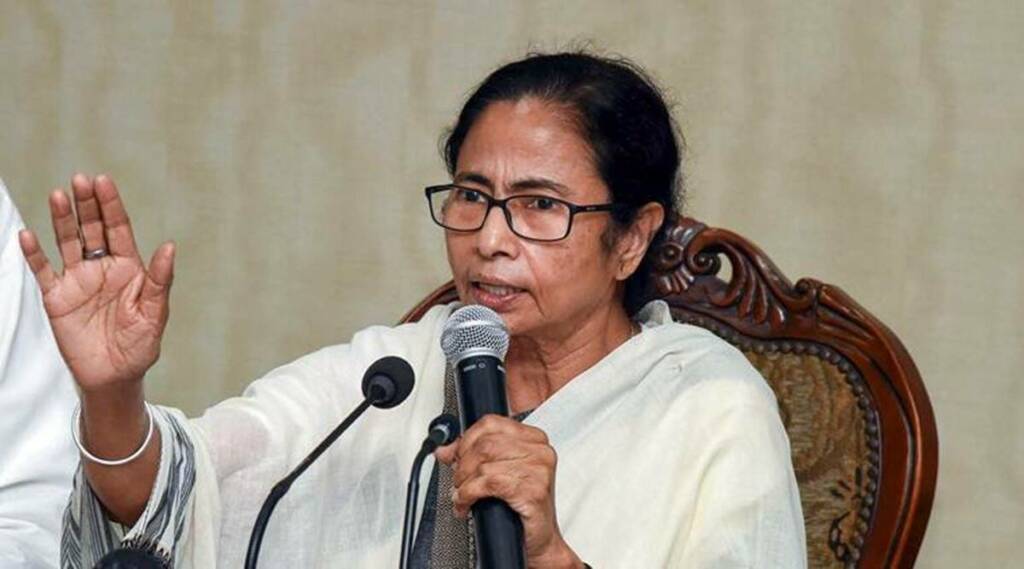In the runup to the Assembly polls in West Bengal next year, it would be prudent to analyse the dissatisfaction among the state’s administrative officers, particularly of IAS descent, as the Chief Minister Mamata Banerjee surrounds herself with four “super bosses”. These four extremely powerful retired officers and administrators, not necessarily belonging to IAS cadres, have been given sweeping powers in the state. This super-cabinet of Mamata Banerjee comprises of former West Bengal chief secretary Rajiva Sinha, former CSS (central secretariat service) officer Gautam Sanyal, IPS officers Surajit Kar Purakayastha (63) and Rina Mitra (61).
The post-retirement executive powers conferred upon such individuals by the Chief Minister herself has sent dissatisfaction running through the serving administrators of the state, who are of the opinion, as reported by The Print, that only those who toe the line of the Chief Minister are rewarded for their loyalty and unquestionable service. The select coterie of those who are ruling the state also serves as a testimony to the fact that the TMC regime in Bengal is running the state through extraconstitutional means, to a degree not seen in any other state in the country.
Coming to those who are a part of the select coterie in Bengal, the individuals who find mention are hardly those even remotely liked by their peers and juniors. The most important in Mamata’s super-cabinet is former West Bengal chief secretary Rajiva Sinha, who was appointed as the chairman of the West Bengal Industrial Development Corporation (WBIDC), at the end of September. As such, Sinha now plays a pivotal role in the economic affairs of the state.
Next in line is Mamata Banerjee’s closest aide and a confidante – Gautam Sanyal, who had retired from the central secretariat service in 2011. He was also back then serving as the secretary to a fairly new Mamata Banerjee at the helm of affairs in Bengal. In June 2015, Mamata re-designated Sanyal as the principal secretary to the CM, the senior-most position in the Chief Minister’s Office (CMO). Interestingly, the position is a cadre post and reserved for IAS officers, yet Sanyal holds it despite having a non-IAS background. Sanyal is the only officer in the country who holds the post despite not being an IAS officer.
Surajit Kar Purkayastha retired as DGP in 2018 and almost instantly got gifted with a position of Mamata Banerjee’s creation – the state security advisor. The concept of having an SSA bears an eerie resemblance to the national security adviser (NSA). Furthermore, the SSA in Bengal has been given sweeping powers over security and law-enforcement agencies. Purakayastha is the only SSA in the country and he directly reports to Mamata Banerjee.
IPS officer Rina Mitra who retired as the special secretary (internal security), Government of India, in 2019 was appointed as the principal advisor to the chief minister of West Bengal for internal security. According to The Print, while Mitra’s role has not been made public, sources indicate that she supervises several security agencies in the state. Attacking Mamata Banerjee for having security advisors for a state, Governor Jagdeep Dhankhar had said, “What are the SSA and internal security advisors doing when illegal bomb making factories are flourishing in Bengal? How do they play the role of super-bosses to the director general of police (DGP) and the statutorily structured police apparatus? How did Al-Qaeda members run their module in Bengal if we have an SSA and internal security experts? It is nothing but blatant politicisation of police administration.”
In fact, the brazen blurring of lines between Bengal’s top police machinery and the TMC government has been on the Centre’s watch as well. Earlier last year, as the CBI and Kolkata police locked horns, Kolkata’s Commissioner of Police Rajeev Kumar and other police officials took to accompanying Mamata Banerjee in her dharna against the Modi government. The Ministry of Home Affairs (MHA) had then ordered disciplinary action against Rajeev Kumar, who CBI had landed in the state capital for investigating in the Saradha Ponzi scam.
The over-concentration of authority in West Bengal in the hands of five individuals including the Chief Minister is alienating a vast amount of the state’s administrators, who feel that instead of merit, loyalty to a particular party helps one climb the ladder under the TMC regime. This is apart from the mass resentment against the TMC regime on the ground, among the people. Mamata Banerjee also trusts only four individuals, which tells us that she is insecure and fears losing power. How Mamata’s extraconstitutional means of ruling the roost play out in election year would be interesting to observe hereon.
